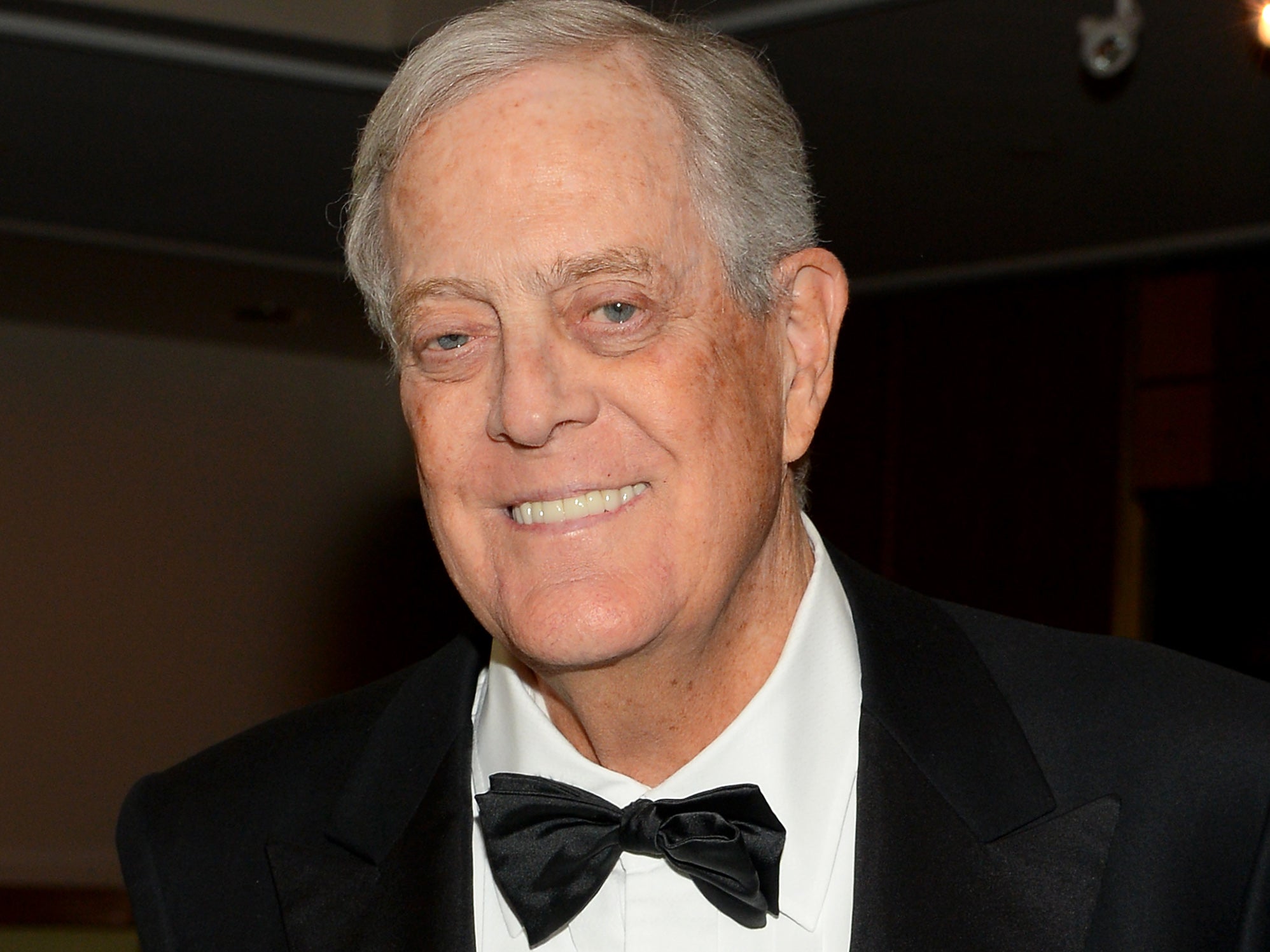Koch brothers lead billionaire resistance against Donald Trump
'If we can’t get comfortable with the policies that are in place, then we’re not going to support them,' says Koch brothers' top lawyer

Your support helps us to tell the story
From reproductive rights to climate change to Big Tech, The Independent is on the ground when the story is developing. Whether it's investigating the financials of Elon Musk's pro-Trump PAC or producing our latest documentary, 'The A Word', which shines a light on the American women fighting for reproductive rights, we know how important it is to parse out the facts from the messaging.
At such a critical moment in US history, we need reporters on the ground. Your donation allows us to keep sending journalists to speak to both sides of the story.
The Independent is trusted by Americans across the entire political spectrum. And unlike many other quality news outlets, we choose not to lock Americans out of our reporting and analysis with paywalls. We believe quality journalism should be available to everyone, paid for by those who can afford it.
Your support makes all the difference.Donald Trump faces resistance not only from protesters and Democrat supporters, but also from wealthy conservatives with Republican purse strings in their hands.
Speaking to 550 donors who give more than $100,000 (£80,000) a year to right-wing political and policy groups backed by the billionaire Koch brothers, industrialist Charles Koch warned the US was facing a moment of “tremendous danger” – although he did not mention Mr Trump by name.
The Koch network, one of the most powerful conservative groups in America, plans to spend up to $400m (£320m) on campaigns exerting political influence over the next two years, up from $250m (£200m) during the 2016 elections.
But the free-market billionaire and his team are set to clash with the President on issues including the introduction of border taxes, hints of a massive new infrastructure program, and his controversial ban on refugees and immigrants from seven mainly Muslim countries, according to Time magazine.
During the presidential campaign, Mr Koch likened Mr Trump’s plan to ban Muslim immigrants to something Adolf Hitler would have done in Nazi Germany.
But at the event in Palm Springs in California, Mr Koch’s team offered a more delicate response to the policy, describing it as “the wrong approach” that violated their dedication to “free and open societies”.
The Kochs refused to support Mr Trump's candidacy last fall, but they now see an opportunity to influence the White House and the Republican-controlled Congress.
A number of prominent members of the Trump administration have ties to the Koch network, including Vice President Mike Pence, Environmental Protection Agency leader nominee Scott Pruitt, and Marc Short, the President’s director of legislative affairs.
“We’re principled, and if we can’t get comfortable with the policies that are in place, then we’re not going to support them,” said Mark Holden, Koch Industries’s top lawyer, according to the Washington Post.
Congress members, many of whom owe their election victories to campaign money, activist groups and ballot data systems provided by Mr Koch and his allies, could come under pressure to align themselves with the group over Mr Trump in key policy battles.
Mr Holden said this “accountability play” was the Koch network’s “secret sauce, so to speak”.
Americans for Prosperity, a grassroots Republican group backed by Mr Koch with millions of activists in 36 states, could also play a role in the wealthy conservative resistance to Mr Trump’s policy decisions.
Corey Lewandowski, an outside adviser to Mr Trump who was his first campaign manager, once ran a branch of Americans for Prosperity in the US state of New Hampshire.
Like Mr Trump, the Kochs favour efforts to cut government regulation and replace the federal health-care system.
Koch Industries, run by Mr Koch and his brother David Koch, is the second-largest privately held company by revenue in the US, according to Forbes.
Originally involved in oil refining and chemicals, the businesses now produce materials and brands including Lycra, Stainmaster carpet and disposable paper cups.
Join our commenting forum
Join thought-provoking conversations, follow other Independent readers and see their replies
0Comments